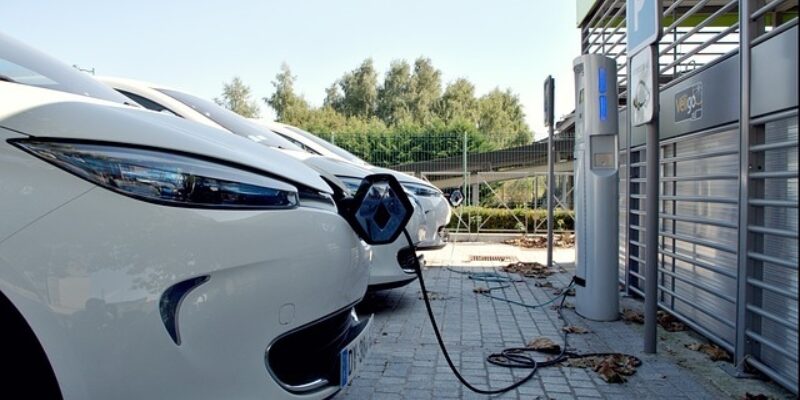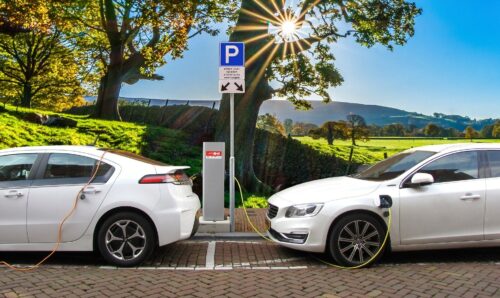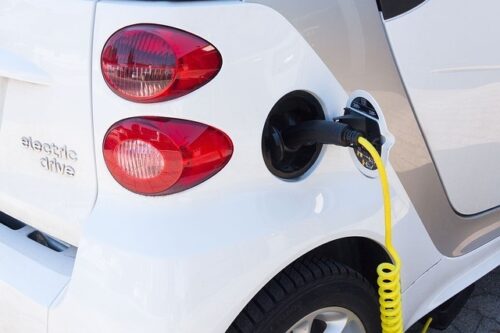

Figures show there are 162,000 electric cars on the road, an increase from the 3,500 in 2013. With motorists slowly ditching petrol and diesel engines in favour of electric cars, the number of electric charging points are increasing. For this reason, we thought it would be useful to create a handy guide to electric charging points for when you next need a top-up.
What is an electric charging point?
An electric charging point is an infrastructure built to supply electric energy to electric vehicles. These charging points will often exist at motorway service stations or shopping centres. However with the rise of electric vehicles on the road, the demand for these charging points has risen and more places are providing them.
How to charge an electric car?

You can choose from two options when it comes to charging your electric car. You can install a charging point in your home, using your own domestic electricity supply or top-up at a public charging point. Making this decision can depend on the length of time it takes to charge your car and the cost of installation in the home. It’s worth noting that some government schemes may help fund some of the money towards the cost of installing electric vehicle chargepoints at homes in the UK.
Charging at home
If most of your charging takes place at home, it’s worth getting a fast charging point installed. Whilst you can plug it into a UK three-pin socket, the former option is much quicker and much more convenient.
If your electric vehicle takes a lengthy time to charge, having a charging point in your home offers the convenience of charging overnight so you are ready to go on your journey by the morning.
You can apply for government funding, they are available to anyone who owns or uses an electric vehicle. However, some car manufacturers do supply you with a fast charging point when you purchase an electric vehicle from them. In addition, with the rise of electric vehicles on the road, according to the BBC, it may become mandatory for new homes to be built with electric charging points.
Charging at a public charging point
You’ll need to find a charging point that is compatible with your electric car. Some electric cars come with an in-built sat nav system that alerts you of your nearest charging point. If this does not apply to you, you can use websites such as ZapMap, which shows you your nearest charging point and additional information such as the type of connector and how fast it will charge your car. The number of charging stations in the UK are rapidly increasing, youcan find them in over 6000 locations.
Which public charging points can I use?
There are a number of different operators that provide charging points for your electric vehicle such as Polar, Chargemaster and Ecotricity to name a few. However you’ll need to become a member of their network and we’d recommend joining a couple. You’ll need to a pay a monthly fee for unlimited use, however there are a few providers who won’t take a fee. Some car manufacturers such as Nissan will offer charging points at their dealerships, so it’s worth doing your research to work out what’s best for your particular model.
Tesla on the other hand offer exclusive charging points, known as their supercharger network, for owners of their Model S and Model X electric cars. It provides rapid charging and can charge 80% of your battery in around 30 minutes.
How do I use a public charging point?
Even if you have an electric charging point installed in the home, there will be times you may need to top up at a public charging station. To use these stations you’ll need to unlock them using their provider’s swipecard or by installing a mobile app. This will release the charging cable and allow you to connect it to your vehicle.
How long does it take to charge an electric car?

It can typically take around 30 minutes to 12 hours to charge an electric vehicle. The length of time it takes depends on the amount of kilowatts (KW) your car can accept, along with the amount of KWs the charging point can provide. Therefore, the higher the wattage, the faster the charge. With charging being a restrictive factor in converting to electric, manufacturers are consciously improving electric car charging all the time. Currently there are three types of EV charging:
Rapid Chargers: When attempting to use public charging ponts, you’ll find rapid chargers are not as common, this is because only a select few electric cars have the compatibility with rapid charging. However, they will charge in as little as 30 minutes, giving you 85% charge.
Slow Charging (rate up to 3kW): If your car has completely no charge, it’s best to leave it charging overnight. A full slow charge will take approximately six-eight hours.
Fast Charging Rate (7-22kW): Most public charging points will offer a fast charge, having you from empty to full in approximately 3-4 hours. Alternatively, you can have the box installed at home.
New models, like electric SUVs are beginning to hit the market, featuring more charging innovations. In the Jaguar I-PACE you’ll be able to pre-set your climate control while charging, to preserve the full driving range for when you are back on the move. Whereas the e-Tron Quattro is also capable of 150kW DC fast charging, allowing you to recharge your car from 0 to 80 percent in 30 minutes.
At Jardine Motors, we have a range of brands who offer electric cars. For more information visit our website.
With more electric cars entering the market, car enthusiasts are spoilt for choice. If you have an electric car or are considering buying one, we’d love to hear your thoughts. Get in touch and tell us your thoughts over on Facebook or Twitter!



